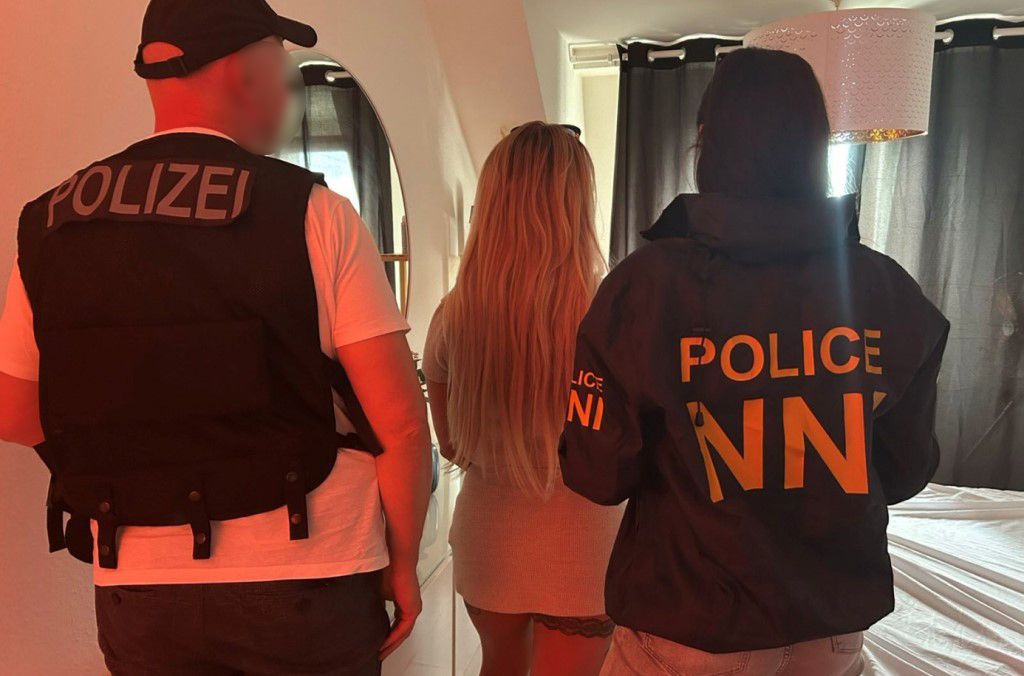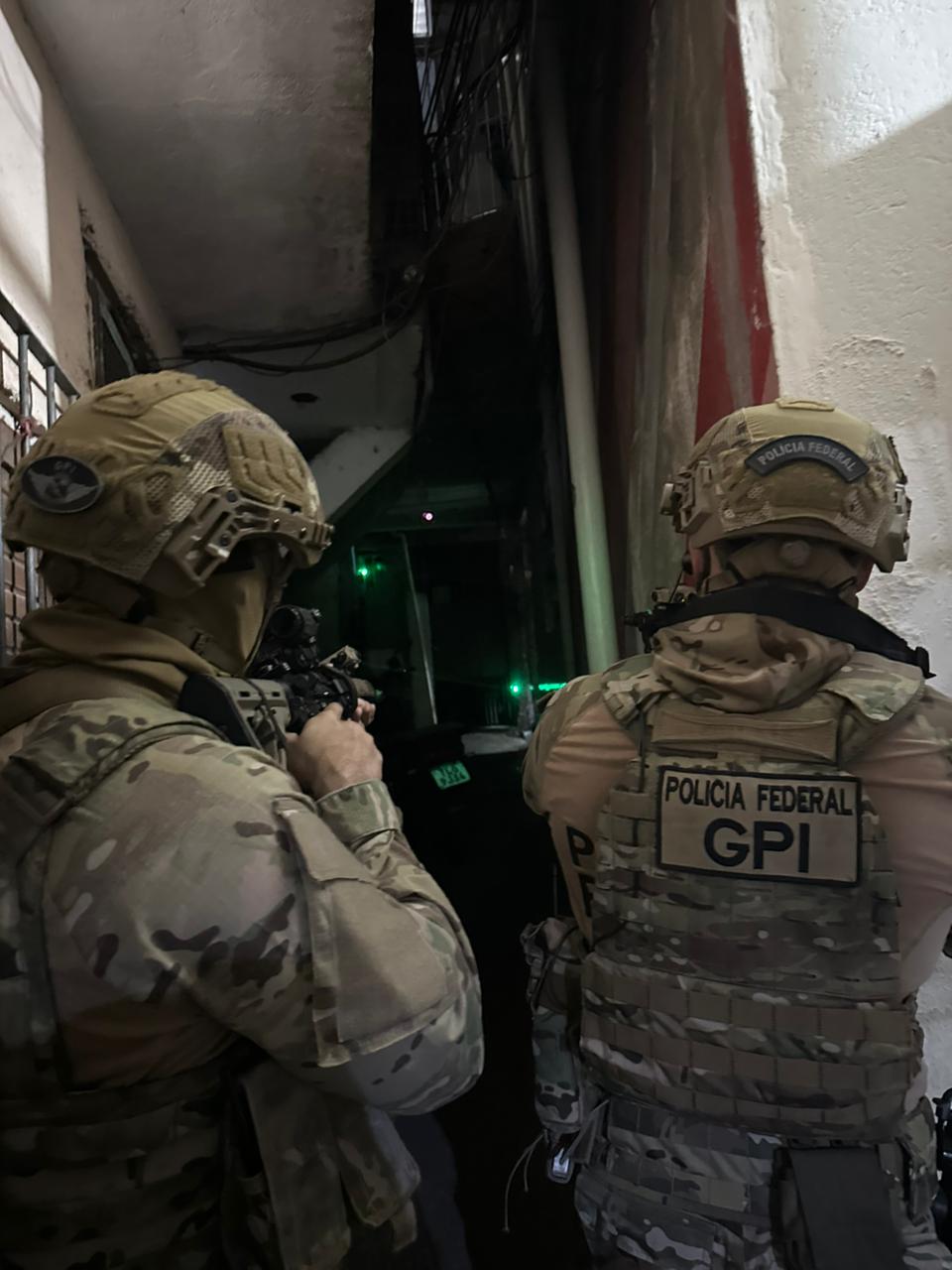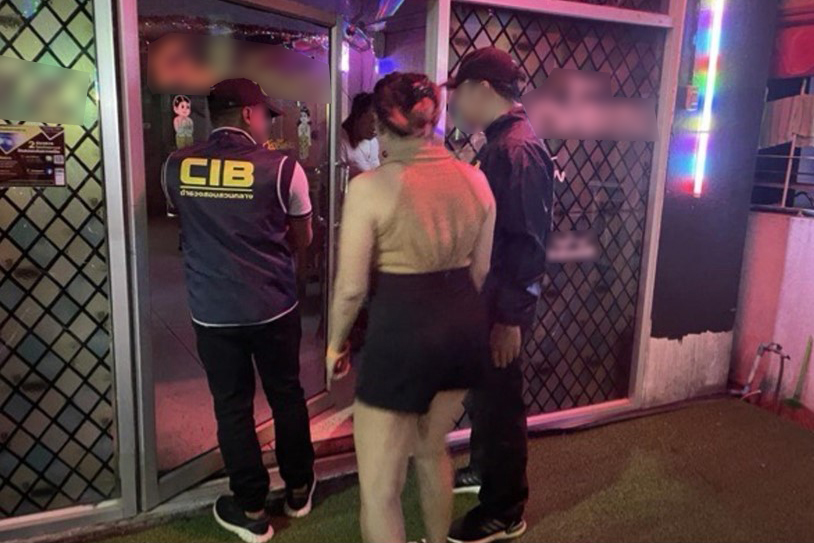158 human traffickers arrested and 1 194 victims safeguarded in global operation
A major operation against human trafficking has resulted in the safeguarding of 1 194 potential victims and the arrest of 158 suspects. As part of ongoing investigations, an additional 205 human trafficking suspects have also been identified. The global crackdown focused on trafficking for the purpose of sexual exploitation, forced criminality and forced begging, with a special focus on underage victims.
This year’s edition of the operation codenamed ‘Global Chain’ took place from 1 to 6 June 2025 and was led by law enforcement in Austria and Romania, with coordination and support from Europol, Frontex and INTERPOL. It aimed to detect and disrupt High-Value-Targets and organised crime groups – responsible for most human trafficking cases – as well as safeguarding victims, seizing criminal assets, and initiating follow-up investigations.
The operation engaged nearly 15 000 officers from 43 different countries and involved law enforcement, border guards, labour inspectorates, tax- and customs authorities. Potential victims were reported from 64 different countries, with a majority from Romania, Ukraine, Colombia, China and Hungary. Many of the victims had been trafficked across borders, and even continents, demonstrating the global nature of human trafficking schemes. Investigations show that the vast majority of victims of sexual exploitation are female and adult, while the exploitation of underage victims is mostly connected to forced begging and forced criminal activity such as pickpocketing. In many of these cases, the safeguarding of victims can be challenging, as they are often exploited by family members.
Jean-Philippe Lecouffe
Deputy Executive Director of Europol, Operations Directorate
Close and effective cooperation between international law enforcement and border authorities remains essential in protecting those who are most vulnerable to exploitation. The outcomes of this year’s operation ‘Global Chain’ are not just statistics, each individual safeguarded from exploitation represents an invaluable success. Human trafficking can only be tackled together, and I am thankful for all countries and partners who joined forces with Europol to support victims and pursue justice for them.
Operational highlights
Austrian law enforcement arrested 7 suspected human traffickers (1 Hungarian, 6 Romanian citizens), while identifying and safeguarding 8 women. Based on the information exchange leading up to the action week, the Romanian family-based organised crime group could be identified and targeted. The criminals were active across several EU Member States in human trafficking for sexual exploitation and forced criminality. Victims were typically recruited using the ‘lover-boy method’ and then forced into prostitution. In addition, the victims were forced to defraud customers, tricking them to hand over large sums of money. In other cases, victims were forced to steal from their customers or lured them to remote places so the traffickers could rob them.
Romanian police carried out house searches, summoned 11 witnesses and arrested 9 individuals for the trafficking of 8 child victims, aged 7 to 15, for the purpose of forced begging.
In Italy, police raided several massage parlours with suspected links to sexual exploitation. They identified 75 potential trafficking victims from Romania, China and Colombia, and also seized drugs and firearms. An Italian suspect was arrested on trafficking charges. 5 other suspects from Italy, Tunisia, Colombia and the Philippines were arrested for other crimes. Several apartments used for forced prostitution were seized by the authorities.
The Maltese Police Force arrested a suspected human trafficker and rescued 3 victims. 3 women (2 sisters and their aunt) from Colombia were offered employment as cleaners by an Italian national. Upon arrival in Malta, however, their passports were confiscated by the suspect under the guise of arranging work permits. The victims were then coerced into prostitution, with the suspect allegedly refusing to return their identification documents and demanding large sums of money in exchange for their return.
Albania safeguarded 3 Chinese victims of sexual exploitation. The victims were recruited in Dubai, the United Arab Emirates, by a Chinese human trafficking organisation and then transferred to Albania, where they had to provide sexual services in a massage parlour. So far, 1 trafficker was arrested and another 1 declared as wanted.
In Greece and Montenegro, law enforcement authorities arrested several individuals and identified others that were exploiting dozens their own children or close relatives for the purpose of begging. Many victims are as young as two or three years old, with others barely of teenage age.

In Hungary, the police was informed that a 15-year-old Hungarian girl was forced to perform prostitution on behalf of her own family. After a comprehensive and victim-centred interview, the minor stated that she was the only source of income for her own family and that her parents, who kept the majority of her daily income, ordered her to perform prostitution.
The father of the victim was arrested during the action week and the victim, now 16-years old, was sheltered in a child-care institution.
In Bosnia and Herzegovina, authorities were notified that a minor was forced into marriage by her parents and that the official “proposal” ceremony was to be held on the same day without her consent. When interviewing the victim, law enforcement officers could confirm that the victim’s parents were forcing her into marriage.
There is a suspicion that the parents did this to ask for money based on a custom. The victim was placed in a safe house. In a separate case, 13 female victims of sexual exploitation were identified (9 from China and 4 from Brazil), and 3 traffickers were arrested (2 Bosnia and Herzegovina citizens and 1 Chinese citizen).
Authorities in Ukraine carried out an undercover operation which exposed a criminal scheme to recruit and transport women to Berlin for the purposes of sexual exploitation. A Ukrainian woman was arrested and a search of her devices revealed evidence of online profiles advertising sexual services in Germany.

Federal Police in Brazil took down a trafficking ring that recruited victims under false promises of employment, then trafficked them to Myanmar for sexual exploitation.
A victim being held captive in southeast Asia was added to an INTERPOL Blue Notice, allowing her to be monitored for safety and subsequently rescued.
Thai police dismantled a prostitution ring involving minors, operating through a well-known social media platform.
12 individuals were arrested, including seven for human trafficking crimes. 2 victims, aged 14 and 17, were rescued.
Significant seizures were also made, including:
- EUR 277,669 in cash
- 1 tonne of cannabis
- 899 units of other narcotics
- 30 firearms
- 15 explosive components
- 65 fraudulent documents
- 5 real estate properties

An international response to an international threat
Europol, Frontex and INTERPOL supported the operation, which also led to 182 new investigations through international coordination. To assist officers in the field and support the real-time exchange of information, a coordination centre was set up at the Frontex headquarters in Warsaw, Poland, staffed by officials from 33 participating countries.
Europol supported the action around the clock, with multiple experts providing analytical support, processing data and cross-checking it against the agency’s databases. One Europol expert was deployed to the coordination centre in Warsaw for the action week.
INTERPOL contributed by providing access to its databases and international notices, as well as offering investigative and analytical support to cases that emerged or progressed during the operation.
Throughout the operation days, countries acted on shared intelligence to raid known locations and carry out seizures. Law enforcement presence was also increased at hotspots and key transport hubs to identify both victims and suspects.
During the six-day operation around 15 000 officers checked:
- 924 392 individuals
- 842 281 documents
- 181 954 vehicles
- 5 745 flights and vessels
- 20 783 locations
Operation ‘Global Chain’ was carried out under the framework of the European Multidisciplinary Platform Against Criminal Threats (EMPACT), with a high-value grant financing the deployment of Hungarian police officers to Germany and Romanian police officers to Switzerland, in order to conduct common actions. The operation also received funding from Interpol’s I-FORCE Project and the German Federal Foreign Office.
EU4FAST, the EU support project to strengthen the fight against migrant smuggling and trafficking in human beings in the Western Balkans, financed the deployment of officers from the region to the coordination centre in Warsaw. This year, AMERIPOL joined this international effort for the first time, financing the deployment of Brazilian and Colombian officers.




